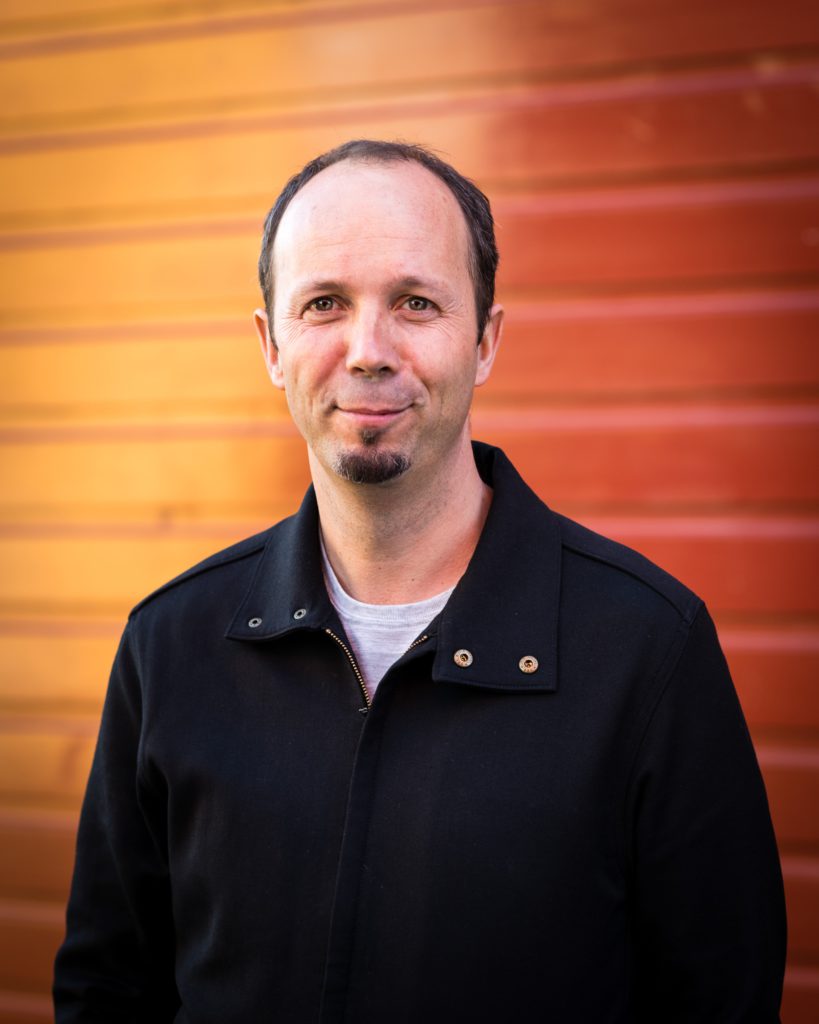The average Singaporean’s annual carbon footprint is over 8 tonnes. That’s roughly double the global average. There are simple ways to make that number lower, such as eating less meat, commuting on public transportation, and using fewer disposable plastic containers. But how much of our carbon footprint is reduced after we perform these actions, and which are the most effective?
KrASIA recently spoke to Ben Gleisner, the founder and global CEO of Cogo, a green fintech firm that works with financial institutions to steer users’ habits and cultivate lifestyles that have a smaller negative impact on the planet. Gleisner was part of New Zealand Prime Minister Jacinda Ardern’s trade delegation to Singapore and Japan in April.
The following interview has been edited for brevity and clarity.
KrASIA (Kr): How did you become interested in climate and sustainability?
Ben Gleisner (BG): I attended university between 2004 and 2007, studying environmental economics. My master’s thesis was on carbon markets. I was always driven to solve big issues, so I thought working for the government would be a good place to start. I worked as an economist at the New Zealand Treasury, specifically on climate change policy.
Kr: What was it like to develop climate change policy?
BG: I remember thinking that we were probably causing more climate change than solving it because we weren’t moving forward. Eventually, I gave up believing that the government was going to solve climate change on its own because we were still talking about the same stuff that was being discussed a decade ago.
Kr: Was that the catalyst that led to Cogo’s formation?
BG: Yes, I decided to build a startup. Cogo launched in 2011. It was an app that helped people understand the impact of their spending and help them find businesses that better align with their values. That didn’t just mean climate change. It was also, for example, which cafés let you bring your own cup or which restaurants pay their staff a living wage.
Since then, I’ve seen big companies like Uber, Airbnb, and Tesla—the ones that disrupt sectors—using all the smarts that the government hasn’t been able to deploy. We are going to use the tricks that big tech companies use to build a more sustainable world.

Kr: One thing that Cogo does is form partnerships with banks. It seems like you’re trying to change consumer behavior via your app. How are you getting that done?
BG: We start with the consumer. We don’t just tell people about their impact on the world after measuring it for them. Our real focus is to change behavior, so we need to ensure that we have good data. You’re not going to get people to change their behaviors unless they feel confident that actions are being measured accurately. For example, when measuring someone’s carbon footprint, our data is specific to a user’s context. If someone is spending money in a restaurant in Hong Kong, they won’t have the same carbon footprint as someone consuming the same thing in Sydney, even if it’s the same restaurant chain.
What we really want to do is not just tell people about their carbon footprint. We can’t assume they’re going to do something about it, so we have to take them on what we call a habit-forming journey. This involves a lot of game design thinking and building habits around things that companies such as Booking.com use—think of the cue that tells you 12 other people are looking at a booking when you use the site. We want to apply the same techniques that behavioral scientists and marketers have developed.
Kr: Walk us through how that is executed.
BG: Let’s say you downloaded the Cogo app because you want to reduce your environmental impact on the planet. The app looks at your transactional information and takes you on a personalized journey and says, “Look, here are the things that are best for you to do.”
Cogo might see that you’re spending a lot of money on petrol and recommend buying an electric car or using public transport. It’ll suggest a local supplier of electric cars or show you the latest discounts you can use for public transport through your local council. It’s like hooking people up with the next best thing to do while keeping it personal.
The key is we use data from your spending history. We may find out, for example, that you respond to incentives. That shapes the recommendations: you might see an offer for a free test drive for an electric car and 5% off its ticket price. Cogo learns over time. Eventually, we can show you how much lower your carbon footprint is. And we let people know that there are other users doing the same thing. It’s like a behavioral science experiment—we all care about our environmental impact, but can we change our behavior?
Kr: Did you plan to incorporate behavioral science in Cogo from the get-go, or was it introduced as you collected more data?
BG: In 2011, when we launched our first app, Conscious Consumers, users had to scan a QR code when they visited a business because we didn’t have their payment data. We would check the information a user provided earlier, including what you cared about, and then make suggestions.
For example, if you visited a café, the app might show you a restaurant around the corner that aligns with your values. But we knew that providing information wasn’t enough. We had to get inside people’s heads. We have been doing this for 11 years, and it has been evolving ever since.
Kr: Has anything taken you by surprise in the habit-building process for users?
BG: I’ve been surprised by how many people in the UK are buying secondhand clothes for the first time. That was because of our app, which skews toward women who are 20 to 30 years old. Another is that people are fascinated by how much carbon is produced from their food.
Kr: Cogo is also trying to offset users’ carbon footprint. Can you explain that part of what the startup does?
BG: Our proposition is that we help individuals measure, reduce, and offset.
At the end of each month, you can choose to offset your carbon footprint. It’s important that the providers are credible. You can buy carbon credits, which is effectively paying someone to plant some trees or put together an initiative that reduces carbon. That’s the way carbon offsets work.
These need to be legitimate, local projects. For example, in Australia, we work with a local provider called Green Collar. They provide carbon credits for the Australian government.
Kr: Cogo is from New Zealand, and a lot of your partners are in the United Kingdom and Australia. How have those partnerships worked out for the company?
BG: I moved my family to the UK four years ago, just as Cogo started integrating users’ banking information and payment data. The UK is quite progressive when it comes to open banking, and London is the fintech capital of Europe, so we moved there to become a fintech company. We have already developed relationships with banks there. And we were among the nine startups selected for the UK Financial Conduct Authority’s green fintech challenge in 2018.
We’ve always looked beyond New Zealand, partly because we want to change the world. Also, there are places that have more advanced regulatory environments than New Zealand. We’ve been very impressed by how forward-thinking some Asian banks are, and we just hired our first person on the ground in the United States. So, America, here we come.
Kr: What is the scale of Cogo’s presence in Asia now?
BG: We have someone on the ground in Hong Kong. We also just won a subsidy from the Tokyo Metropolitan Government; we have an office in Tokyo and just hired our first team member there, with another to be hired soon. And we have an advisor in Singapore. That’s our team in Asia, where we see a big opportunity.
Kr: What are your observations in terms of market differences in Japan compared with Australia?
BG: For all markets, it takes time to build relationships with banks, whether you’re in New Zealand, Australia, Japan, or the UK. We’ve been in conversation with banks in Japan for nine months, but we want to build long-term relationships because we won’t solve climate change in three to five years—it’ll take 20 years. It’s going to take at least a decade to put everyone on a better trajectory.
We’re in it for the long run, so we’re happy to spend time building relationships with customers. It’s worth the wait, and we need to put a lot of energy into this if we’re going to solve big issues.
Kr: In Southeast Asia, fintech is advancing in different directions, including open finance and crypto. Is Cogo trying to build partnerships based on these developments too?
BG: We’ve been riding the fintech wave. We’re also riding a sustainability and climate wave, so we’re at the forefront of these trends.
Banks understand that their customers want better digital experiences, including paying with crypto and seeing their carbon footprint. Banks are catalysts for these opportunities because they hold so much information about users.
But it will take time. Singapore seems to be the most advanced market in Asia, right up there with Hong Kong and Japan.
Kr: Are you looking for other types of partners beyond banks?
BG: We have a partnership with an accounting firm to support businesses through their accounting information.
We’re really interested in Japan, where we are trying to work with businesses in food retail to highlight the carbon footprint of products in supermarkets or meals in restaurants. This could work with large retail chains too.
Everybody knows what the price of coffee or milk is, but people generally don’t know the carbon footprint of the products they buy. Part of our job is to foster carbon literacy, so people form the mindset of having a carbon budget of, say, one tonne per month, along with the awareness that they might blow their whole budget on something like a plane flight.
The point is to wrap people’s heads around the idea that carbon is a currency that is becoming more and more important to understand. With Cogo, we want to help any company and any person understand their impact on the planet.

